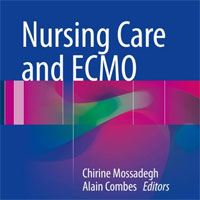Stories Category: Intensive Care

You Can Stop Humming Now: A Doctor’s Stories of Life, Death, and in Between
Modern medicine is a world that glimmers with new technology and cutting-edge research. To the public eye, medical stories often begin with sirens and flashing lights and culminate in survival or death. But these are only... read more

Providing Psychological Support to People in Intensive Care
The Provision Of Psychological support to People in Intensive Care (POPPI) psychological intervention to reduce acute patient stress in critical care and prevent future psychological morbidity was feasible and acceptable.... read more

AKI and Electrolyte Disorders in the Critically Ill Patient with Cancer
This review outlines key knowledge areas for critical care physicians and nephrologists caring for patients with cancer and associated kidney issues such as acute kidney injury (AKI) and electrolyte disorders. Specifically,... read more

Cryptococcus Neoformans Meningoencephalitis
A 36-year-old man presented to the emergency department with a 2-week history of fever, headache, drowsiness, and photophobia. He was previously healthy and was sexually active with men. The physical examination was notable... read more

Operator performs robot-assisted PCI from 100 miles away
Tele-stenting appears more possible now than ever, as Vascular Robotics announced an interventional cardiologist used its CorPath GRX System to perform a remote percutaneous coronary intervention (PCI) in a pig 100 miles... read more

Skeletal Muscle Dysfunction in COPD. What We Know and Can Do for Our Patients
Skeletal muscle dysfunction occurs in patients with chronic obstructive pulmonary disease (COPD) and affects both ventilatory and nonventilatory muscle groups. It represents a very important comorbidity that is associated... read more

Doctors Rely on More than Just Data for Medical Decision Making
Many technology companies are working on artificial intelligence systems that can analyze medical data to help diagnose or treat health problems. Such systems raise the question of whether this kind of technology can perform... read more

I Had PTSD After a Critical Illness. Apparently That’s Fairly Common
The emotional trauma of a near-death experience causes ongoing emotional and physical symptoms in one-third of ICU patients. PICS doesn't have a time limitation and can be triggered by almost anything. I was suddenly anxious... read more

Common pitfalls in point-of-care ultrasound: a practical guide for emergency and critical care physicians
Point-of-care ultrasonography (POCUS) is a widely used tool in emergency and critical care settings, useful in the decision-making process as well as in interventional guidance. Following some rules in technique and interpretation,... read more

Ranking antibiotics in order of allergenicity
Our current approach to allergy is primarily patient-based. This focuses on the patient’s prior history of reaction: how severe was it, when was it, how certain are we that it was truly allergic? This strategy has been... read more

A Randomized Trial of Epinephrine in Out-of-Hospital Cardiac Arrest
In adults with out-of-hospital cardiac arrest, the use of epinephrine resulted in a significantly higher rate of 30-day survival than the use of placebo, but there was no significant between-group difference in the rate of... read more

MAP of 65: Target of the Past?
Septic shock is defined as sepsis with hypotension refractory to fluid challenge and requiring vasopressor support combined with an increase in arterial lactate reflecting impaired cellular energy metabolism and dysoxia.... read more

Help! I Need Somebody
It's not so easy - how do you ask neurosurgery at 4 in the morning to see your patient with subdural hematoma? Or when you have a really sick patient that you don't know what to do with, or a difficult airway but you're the... read more

Vascular Effects of Adrenomedullin and the Anti-Adrenomedullin Antibody Adrecizumab in Sepsis
Sepsis remains a major scientific and medical challenge, for which, apart from significant refinements in supportive therapy, treatment has barely changed over the last few decades. During sepsis, both vascular tone and vascular... read more








